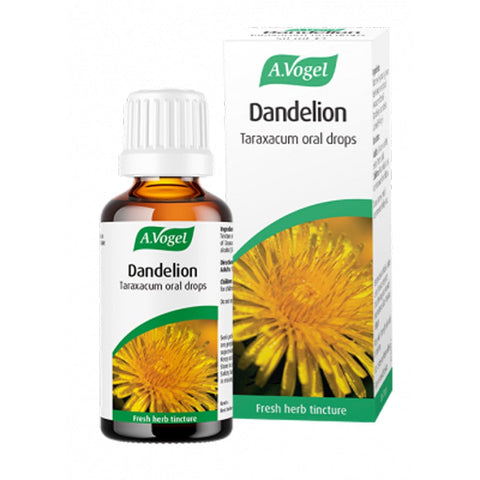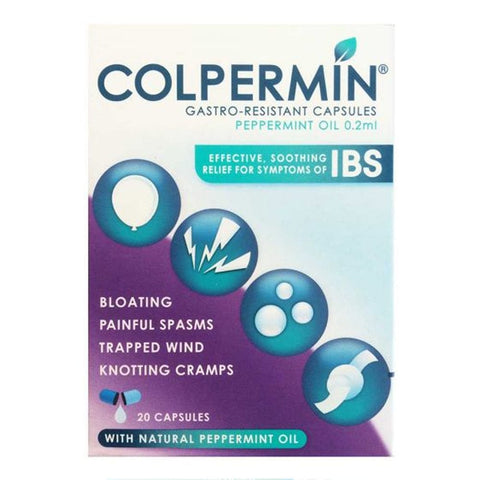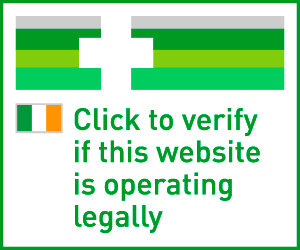There is nothing as uncomfortable as a bloated stomach. It's a condition that you’ll often experience or hear your friends or colleagues complain about in their daily lives. Unfortunately, abdominal bloating is a regular occurrence for many and can be pretty stressful.
Left unchecked, your gut health can be compromised by prolonged bouts of bloating, and can be a main symptom of a more serious longer-term health condition such as Irritable Bowel Syndrome (IBS).
Peer-reviewed studies indicate that bloating is a common symptom among people with IBS. This condition currently up to one in five people in Ireland and it affects considerably more women than men and is more prevalent in younger women (18-40) than older women.
If you fall under this demographic - or experience any bloating-related symptoms - it pays to educate yourself on what exactly is going on inside your tummy and the common triggers and treatments available to you.
What is Bloating?
Most people complain of bloating when their tummies are full, but this may not always be the case. Bloating is characterised by a full or expanded stomach and tightened digestive tract, and in most cases, you’ll feel the presence of gas in the abdomen.
Feeling full after you’ve eaten isn’t bloating; perhaps you’ve simply overeaten, and in this case there is nothing to worry about.
Bloating can be quite uncomfortable and sometimes it becomes painful. It can have an adverse impact on your bowel habits and if left unchecked, can harm your overall quality of life.
Common Causes of Abdominal Bloating
Knowing what triggers abdominal bloating can help you prevent future cases. Below are some of the most common causes of bloating in both men and women:
Overeating
Overeating is ultimately the main cause of bloating. In fact, most people complain about bloating when they eat more than enough, or consume excessive amounts of sugary or carbonated fizzy drinks.
In most cases, people tend to overeat during food-centric holiday periods such as Easter and Christmas. It's no coincidence that Irish people experience bloating and all manner of stomach problems during these periods.
When you eat large portions of rich food, your stomach will have a hard time digesting the food. Digestion will happen slowly, causing fermentation, excess wind and ultimately, the sensation of bloating
Food Intolerance
Eating the wrong food can lead to bloating. If you find that your stomach is reacting a lot to certain meals or foods you might have a food intolerance. People with food intolerance always find their stomach bloated after eating anything that triggers their intolerance.
Living with a food intolerance means that your GI tract can’t digest certain ingredients such as gluten or lactose. Problematic foods will always cause bloating regardless of the amount you consume.
Eating Too Quickly
Consuming your food fast increases the chances of abdominal bloating. The logic behind this claim is that you’ll be swallowing plenty of air, and at the same time, you’ll be overwhelming your stomach.
Besides, your stomach will take time to alert your brain you’ve had enough. By the time your brain gets the message, you’ll have consumed more than enough to make your stomach bloated.
Constipation
Constipation happens when you have irregular bowel movements or difficulty passing stool. Unfortunately, the symptoms of constipation can arise through bloating if not handled immediately. Once your stool remains in the colon for longer, bacteria will release more gas. In addition, the inability to defecate prevents you from passing gas out of the body.
This means that constipation will cause gas to accumulate in your stomach and intestines, which explains the feeling of too much gas and bloating.
Too Many Carbs
Ingesting too many carbohydrates can lead to bloating. Remember that the body takes little time to digest and absorb carbs into your blood. Taking too many carbs will cause water retention and ultimately lead to a bloated stomach. You should avoid simple carbs such as soft drinks, sweets, white bread and pastries. But if you must take them, do so in small amounts.
Lactose Intolerance or Coeliac Disease
Coeliac disease is a digestive disorder of the small intestine which interferes with the absorption of nutrients from ingested food and can cause many of the bloating symptoms covered throughout this piece.
Those who suffer from coeliac disease cannot tolerate a form of protein called gluten, which is found in some oat-based foods and common foods with high wheat, rye and barley content.
When coeliacs consume gluten, their immune system responds by harming the small intestine, causing high levels of pain, bloating and discomfort. Coeliac disease is therefore classed as an auto-immune disorder and requires its own set of medical treatment and consultation with your GP.
Irritable Bowel Syndrome (IBS) or Inflammatory Bowel Disease (IBD)
Sometimes gas and bloating can be caused by other underlying medical conditions. One such condition is Irritable Bowel Syndrome (IBS).
IBS is not officially classed as an autoimmune disorder or gastrointestinal disorder like Coeliac Disease. Medically-reviewed sources claim that constipation, diarrhoea, gas, abdominal pain, and bloating are the main symptoms of IBS.
Irritable Bowel Disease (IBD), on the other hand, is caused by inflammation or destruction of the bowel wall, which can lead to sores and narrowing of the intestines.
Both are chronic health conditions that can cause acute abdominal pain, cramping, and urgent bowel movement, yet despite having similar symptoms and acronyms, the two conditions are different.
IBS is a disorder of the gastrointestinal (GI) tract whereas IBD is the result of a damaged bowel lining. It's possible for patients to suffer from both IBD and IBS simultaneously and you should, of course, still see a doctor if you experience any or all the above symptoms for extended periods or if symptoms worsen.
Ascites
Ascites is a liver disease that’s characterised by fluid retention around the abdominal area. Too much fluid retention will cause a lot of pressure on other internal organs, resulting in discomfort. Besides, this liver disease also causes abdominal pain, bloating and back pain.
Unfortunately, Ascites is a serious condition that requires your GP’s attention.
Anxiety
Anxiety is one of the primary causes of bloating, which may surprise you. Many studies have proven that there is a close link between anxiety and our gut health such as this review. The feeling of anxiety can induce discomfort in your GI tract and even influence stool habits.
The source also claims that psychological stress and anxiety can alter GI contractions and ultimately cause constipation and other unwanted bloating symptoms.
Medically Reviewed Remedies for Bloating
Unless you are suffering from chronic bloating or a more serious IBD or IBS diagnosis, you can treat this condition from the comfort of your home via better diet choices. A couple of proactive lifestyle changes should help you prevent future cases of bloating and the associated discomfort
But if the remedies highlighted below fail to work, you should consider seeking advice from health and wellbeing professionals. Visit your local pharmacy to discuss the best over-the-counter medications to suit your situation.
What Relieves Bloating?
Having a bloated stomach can cause a lot of discomfort, and a common solution is to try a home remedy. These remedies can help you relieve the symptoms of abdominal bloating pretty quickly:
Get Some Light Exercise
Breaking a sweat can help you naturally rid your tummy of gas. Regular exercise incorporating gentle movements such as stretching and walking will help your blood flow more efficiently and prevent water retention in the body.
Take Herbal Bitters
Some dietitians recommend using preserved medicinal herbs and botanicals to soothe a bloated stomach.
You can even sip on digestive bitters if you’ve accidentally eaten fatty foods or indigestible carbohydrates that cause gas production or stomach pain. The most reliable medicinal bitters include yellow dock, dandelion, gentian root, artichoke, angelica and burdock.
Please bear in mind that while alternative medicine works well for some, others may experience little or no benefits from them.
Consume Natural Diuretics
A diuretic is any substance that promotes diuresis, the increased production of urine. Natural diuretics such as lemon, fennel, celery, dandelion drops and fennel can help with digestion and gas; they also play a huge role in drawing water out of your body.
Make sure to incorporate such food into your dietary regime if you want to reduce bloating.
Try a Belly Massage
A gentle massage to your stomach can help with bowel function. You need to do it right and follow the path of the large intestine for the massage to work. Discontinue the massage if it causes any pain.
Medications to Help Relieve Gas
There are some over-the-counter stomach and bowel care options available from your local Meaghers Pharmacy to relieve your bloating.
Colpermin helps to relieve symptoms of IBS such as bloating and cramping. If your bloating is associated with constipation or diarrhoea there are also medications to help with this such as Dulcolax, Sennokot and Immodium.
Always check with your pharmacist before starting any new medications to ensure that it is safe for you.
Use the following strategies if you're trying to prevent future cases of abdominal bloating:
How to Prevent Abdominal Bloating
Having to deal with a bloated stomach every now and then can cause emotional stress and physical discomfort on many levels and it’s not ideal to keep taking gas relief capsules or other bloating medication every day.
To avoid an over-reliance on reactive medications, we’d advise you try out the following proactive health management tips for bloat reduction.
Swap Soft Drinks for Water
Most fizzy drinks are notorious for causing gas build up in the stomach. Ditching such drinks and replacing them with water can eliminate cases of bloating. Besides, drinking plenty of water helps to treat and prevent constipation, a major cause of bloating.
Avoid Chewing Gum
Most people who are used to chewing gum have to deal with a bloated stomach regularly. Remember that gummies contain sugar alcohols that cause bloating. Moreover, you always swallow air while chewing. It doesn’t matter if you are trying to freshen your breath; avoid chewing gum altogether and go for peppermints or ginger mints.
Try a Gut Health Supplement
People with a healthy gut rarely complain about gas and bloating. Taking a food supplement which contains live and active bacteria such as Symprove should help you maintain a healthy gut by introducing beneficial nutrients in the intestines. As long as there is an equilibrium in the gut microbiome, 'bad' bacterial overgrowth can neither trigger bloating nor produce gas.
You can also increase the number of 'good' bacteria in the gut by consuming probiotic foods as well. Probiotic-enriched foods include yoghurt, pickles, kimchi, kefir, sauerkraut, tempeh, kombucha, miso, and sourdough. The idea here is to improve the bacterial environment in the gastrointestinal tract.
You can read more about supporting your gut health here.
Increase Your Fibre Intake
Eating foods rich in fibre is a good way to prevent constipation. Fibre adds bulk to the food, meaning it will move through the intestines pretty quickly.
As much as you want to increase your fibre intake, do so in a moderate way. Your system needs to adjust accordingly to process the increased bulk. If you are not careful, you’ll feel more bloated than before.
Go for a Low FODMAP Diet
If you have been dealing with excessive bloating for a long time, you might want to restrict certain types of foods from your diet.
Dietitians often recommend a diet that’s low in fermentable carbs as it helps reduce and curb bloating and any other digestive symptoms.
FODMAP is a term coined together to classify specific groups of carbs that are known to trigger bloating, stomach pain and gas.
In short, it stands for 'Fermentable Oligosaccharides, Disaccharides, Monosaccharides and Polyols'; an umbrella term that includes simple sugars that are poorly absorbed and rapidly fermented by the gut.
Keep a Food Diary
A food diary can come in handy when trying to identify foods that trigger reactivity. If you’ve been having unwanted digestive symptoms, you might want to record everything you eat in the food diary and assess which meals contribute to the symptoms.
When should I be worried about bloating?
You should seek medical advice if you experience prolonged bloating, stomach pains or other worrying symptoms such as unexplained weight loss, excessive wind, bleeding, constipation, and diarrhea.
Bloating relief is commonly prescribed and there are a wealth of great solutions on the Irish market to help you manage and overcome bloating.
There is a possibility that you have other underlying conditions that only a GP or certified health care practitioner can identify. So, don't hesitate to seek medical advice for the treatment of bloating if your symptoms persist.
The Meaghers Verdict on Bloating
It is evident that a healthy gut is directly related to various health benefits, including mental health, heart health, and brain health.
There’s a broad variety of food and supplement choices you can make to give your gut the best possible chance of performing its duties efficiently as your body evolves through life’s stages and you have to play your part in maintaining your gut's healthy bacteria balance by consuming a balance of probiotic foods and supplements along the way.
Contact Us to Discuss Your Bloating Relief Needs
We hope this guide has equipped you with the knowledge to understand the causes of and solutions to bloating and make you more aware of the options available to Irish consumers for reducing bloating symptoms and improving your gut health.
As ever, if you’ve got any questions for our team on the topic of bloating, IBD or any other common medical topics, please contact us today and we’d be happy to assist and provide you with further information to make a more informed decision on the best path forward for your tummy health and general wellbeing!






